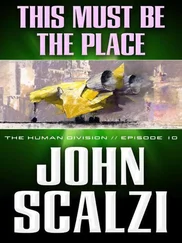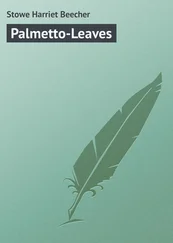Earlier in the summer, back at the owl conference in Wolcott, at about three or four o’clock in the morning, the group scattered out in the swamp, quiet, listening for owls. I was standing with a Frenchwoman named Dr. Ponge when she brought her flashlight close to my face and said, in a thick accent, “Do you mind if I. .,” and placed the palm of her hand on my forehead. “I think you have malaria,” she said. Malaria was obviously a stand-in for a high fever; she didn’t mean malaria literally. “I’ve been looking at you, and your eyes look. . rheumy. I think you should go home and lie down. You live in Vermont — you can come to this place anytime, yes?”
I took out my small leather case that had the thermometers inside. Standing in the muck, surrounded on all sides by an international array of owl obsessives, I took my temperature. “Let me read it,” Dr. Ponge said. She studied the thermometer. “Oh, okay — okay, not good. Not good.”
I walked out of the swamp, got in my car, and drove to the main building of the Center for Northern Studies. I took two bottles of spring water from the small refrigerator and drank them both in short order. I lay down on the cot in the auxiliary room and fell right to sleep. When I woke and looked at the clock on a nearby worktable, it read 11:05 A.M. — I’d slept for approximately seven hours.
When I made my way to the conference room, I found Dr. Ponge and five or six other people looking at photographs of Asian fishing owls. “Oh, we had a doctor come out — do you remember?” Dr. Ponge said. I said I didn’t remember that at all. “Yes, he examined you and took your temperature. It was down to almost normal. So he said to just let you sleep. And by the way, I spoke with a young woman who answered your telephone. Olivia. I told her you were sleeping and there were a lot of people here, and that there was nothing to worry about. Olivia said she’d give the message to your family, okay?”
“Well, thank you so much for looking after me. I didn’t mean for that to happen.”
“No problem,” she said. Then everyone went back to the photographs.
“Did you see many owls last night?” I asked.
“Yes, quite a few,” Dr. Ponge said. “It was very satisfying.”
Late in the evening on the day the owl conference ended, I went into my barn after dinner and, on the hay-strewn floor of the upper level, beneath the rafter beam on which Gertrude could most often be observed, I discovered Pemberton’s nametag.
This was really confusing. Looking up at the rafters, I imagined the bones of Pemberton, his skull perhaps, and tufts of fur; in the past I’d climbed up there and seen the skeletal remains of mice, wood rats, snakes, hares, fish, toads, and birds. Allison and Mark had two young sons; the family adored Pemberton. How could I tell them? Should I tell them? What was the right thing to do in these circumstances? Mark worked for the Nature Conservancy; that he surely knew all about predator-prey relationships was one thing, but that their beloved pet had been lifted into the air, carried aloft to the rafters of my barn, and eviscerated by a sharp beak and talons was quite another. I’d had the passing thought, too, that the boys, who each owned a.22-caliber rifle, might naturally seek revenge on Gertrude. In every important regard they were solid boys, but still, one could hardly blame them.
In the end I never uttered a word. In subsequent years my family lost several cats, who simply never came back from nighttime wanderings. After each disappearance, all of us were broken-hearted. I wondered if Gertrude had anything to do with those cats, but I stayed out of the barn for weeks, not wanting to know. And many times I’d see Gertrude flying from the paneless topmost window of the barn at dusk, and return at first light.
By the time I was exhausted from writing the next-to-last article on having a well drilled, I started the last one, for a magazine in California. I was allowed twenty pages. Reading that piece over now, I realize that to some extent it evokes a lot of the anxiety of that summer. The first sentence was “We had set aside enough money to get through the summer but suddenly needed a new well dug, which meant we had not set aside enough.” In the course of this article I shamelessly depicted the Benidini Brothers as deviously clever white trash, and suggested that people were at their “mercy” in every aspect of well drilling, from the location of the well itself to taking their word for “reading the water,” as it was called, meaning its volume and clearness. Of course, all of that was simply my response to the nonscientific aspects of the profession of well digging. What is more, I inserted a dream about a neighbor’s cat falling into a well. I also referred to another dream I’d had, of seeing Noah’s Ark on the Winooski River, which ran through Montpelier. In the dream, Noah’s wife was taking Noah’s temperature with a modern thermometer. In rejecting the article, the editor of the magazine politely wrote, “These dreams are extraneous to the subject at hand.”
Therapist: So, your fever broke right after finding out the Confederate soldier was not a Confederate soldier?
Me: Same night.
Therapist: No coincidence, then. There’s much to talk about.
Everything I loved most happened most every day. While examining me again late in August, my physician said, “Just wanted to mention that I did some research into that mysterious fever you had. Not yours exactly, but mysterious fevers in general. I ran across one account of a man who had a temperature of a hundred and one for about twenty years, and one day it just dropped back down to normal. It was interesting reading. I have you to thank for that. Hope you’re not disappointed, though, not getting into the Guinness Book of World Records or something. Okay, we’re done here. You’re good. Temperature’s normal. Everything looks good.”
I drove to Country Books. Ben Koenig’s assistant said that St. John Holman had left town, but before he did, he purchased over five hundred dollars’ worth of books about the Civil War, also a number of Civil War — era photographic postcards. “I helped carry it all to his truck,” the assistant said. “Go back and look for yourself if you want. There’s three completely empty shelves.”
I went and looked. When I stepped up to the counter again, he said, “Know what else? I bought his hat from him for ten bucks. He got the good deal there.” This assistant, who was about six feet tall, with a mountain-man black beard, who normally preferred to be inconspicuous, happy to labor away in silence back in the stacks, jauntily placed the Confederate soldier’s cap on his head. It looked really stupid on him. “If you’re looking for Ben, by the way, he’s taking some time off. With that big sale, he might go to Paris.”
On Vermont Public Radio, every forecast on the “Eye on the Sky” weather report dedicates itself to elaborate language, which some of my friends suggested was overkill. I didn’t feel that way at all. I loved descriptions such as, “Southern portions of Quebec province sponsored last night’s rain, and the same can be said about today’s light showers throughout the broadcast area. Late-afternoon and early-evening water spouts might hazard small craft on Lake Champlain. One farmer near Peacham reported geese had shown up in his barn. I suppose we shouldn’t be surprised that even water fowl sometimes need to get out of the rain. Tomorrow, more rain. Temperatures will range between eighty and eighty-five in the lower elevations.”
I stopped at Jules and Helen Rabin’s house to pick up two loaves of bread they had made in their medieval stone beehive oven. On my way home I listened to Tom Slayton’s excellent review of the latest collection of poems by Hayden Carruth and a retrospective of Carruth’s writing life, and then switched off the car radio the moment I recognized the insufferable voice of Willem Lang, about to deliver a sanctimonious editorial. Then I noticed an enormous, prehistoric-looking snapping turtle crossing Route 14. I stopped the car, broke off a small branch from a fallen tree ten yards from the road, and approached the turtle, which spun to face me, hissing. The thing to do was get the turtle to lurch its accordion neck forward and bite the branch, then drag the whole contraption into the wet gulley alongside the road and run like hell. This worked out fairly quickly.
Читать дальше












